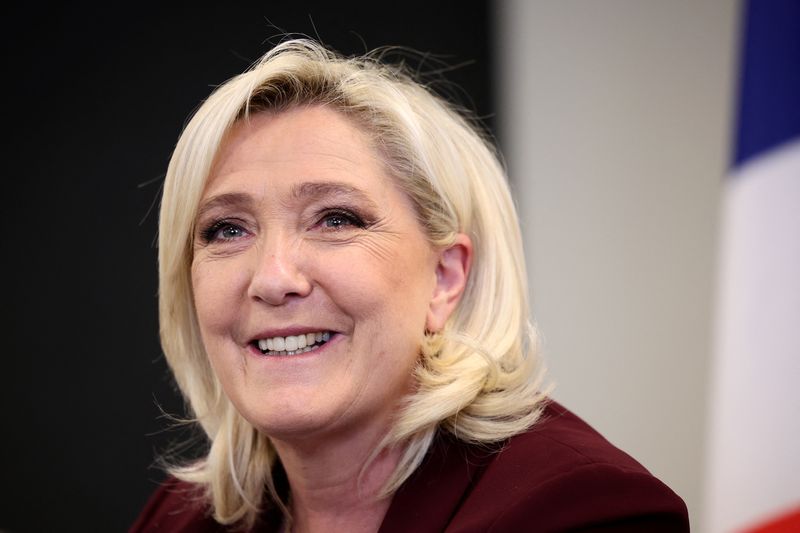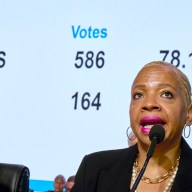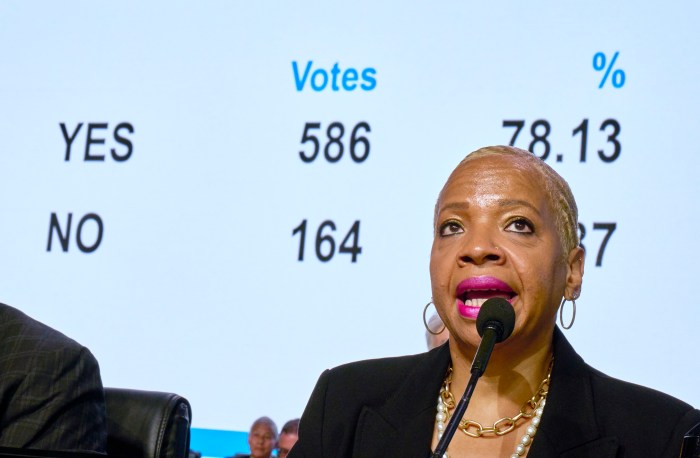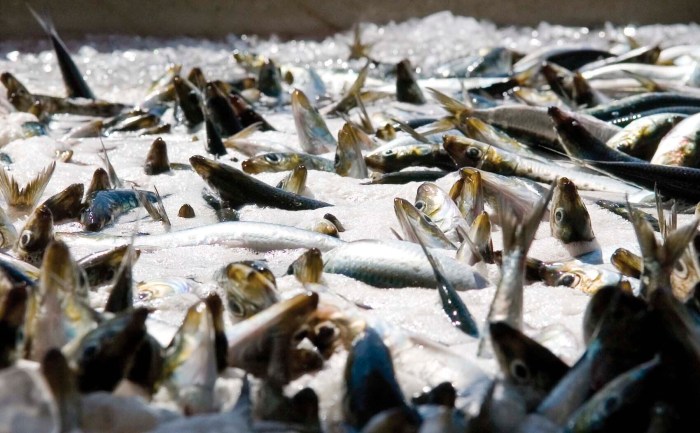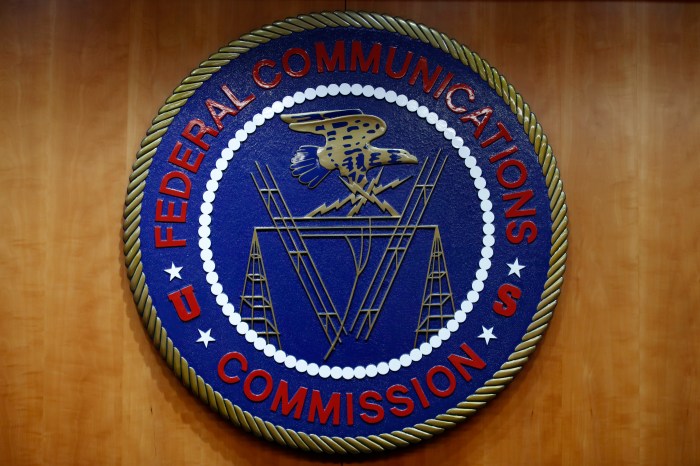PARIS (Reuters) – Far-right presidential candidate Marine Le Pen sought on Wednesday to play up her leadership credentials on the world stage, urging a break with France’s recent diplomatic past to make what she called a country that “still counts.”
A Le Pen victory in France’s election run-off on April 24 would reverberate through Europe and across the Atlantic, installing a deep eurosceptic in the Elysee Palace who has long professed admiration for Russian President Vladimir Putin.
Le Pen has drawn criticism in the past for a shaky grasp of geopolitics, once asserting that Russia had not invaded Crimea in 2014. Given the role of the French president is to take the lead on foreign policy, Le Pen held a 90-minute news conference aiming to show she had the stature of a major power leader.
She told international and French media that she wanted to clear up “misunderstandings” about her foreign policy.
“France is not a middle nation but a big power that counts,” she said, launching a 30-minute monologue on France’s historical achievements before outlining differences with what she called the “chatty, sketchy and ill-informed” diplomacy of pro-European centrist President Emmanuel Macron, her opponent on April 24.
She said she had been misjudged in her previous expressions of esteem for Putin, saying she had only been defending French interests in her warm contacts with the Kremlin leader, including calls for an alliance with Moscow.
“As soon as the Russian-Ukrainian war is over and has been settled by a peace treaty, I will call for the implementation of a strategic rapprochement between NATO and Russia,” Le Pen said.
She reaffirmed that, if elected president, she would take France out of U.S.-led NATO’s integrated command structure to restore French sovereignty on matters of international security.
The news conference was briefly interrupted when a protester held up a picture of Le Pen’s 2017 meeting with Putin, cut out in the shape of a heart, before being dragged out by security.
FRENCH ‘BLINDNESS’ WITH GERMANY
Le Pen also suggested she wanted more distance in relations with fellow European Union powerhouse Germany.
While supporting Franco-German friendship and asserting that French and German should replace English as the operating languages of European institutions, she warned that “strategic differences” would mean a new way of working with Berlin.
She would put an end to Franco-German military cooperation, including future warplane and tank programmes.
“I would continue…reconciliation without following the Macron-Merkel model of French blindness towards Berlin,” she said, referring to the former longtime German chancellor.
She advocated a looser version of the European Union although reaffirmed that she would keep France in the 27-nation bloc. Le Pen previously dropped calls to ditch the euro currency or leave the EU, which cost her votes in past elections.
“Nobody is against Europe. We want to reform the European Union from within. The more we free ourselves from the straitjacket of Brussels while remaining in the EU, the more we will look to the wider world,” she said.
“It seems to me that this is what the English understood well,” she said, referring to Britain’s 2020 exit from the EU.
Her programme aims to hollow out the EU and would put her on a collision course with most of the bloc’s partners on many points, including plans to cut French contributions to the EU budget and re-establish the primacy of French law over EU law.
Macron has categorised Le Pen’s manifesto as full of lies and false promises concealing a far-right agenda that ultimately would lead to France’s departure from the EU.
“This sends shivers down my spine. It’s a mix of themes from Trump and Brexit rhetoric,” a European diplomat told Reuters.
“A return to a reinterpreted past, with quotes from all sides to legitimise it and try to give it more rationality. If her European programme is applied, then France risks becoming irrelevant in Europe,” the diplomat said.
(Additional reporting by Geert de Clercq; Writing by John Irish; Editing by Mark Heinrich)

